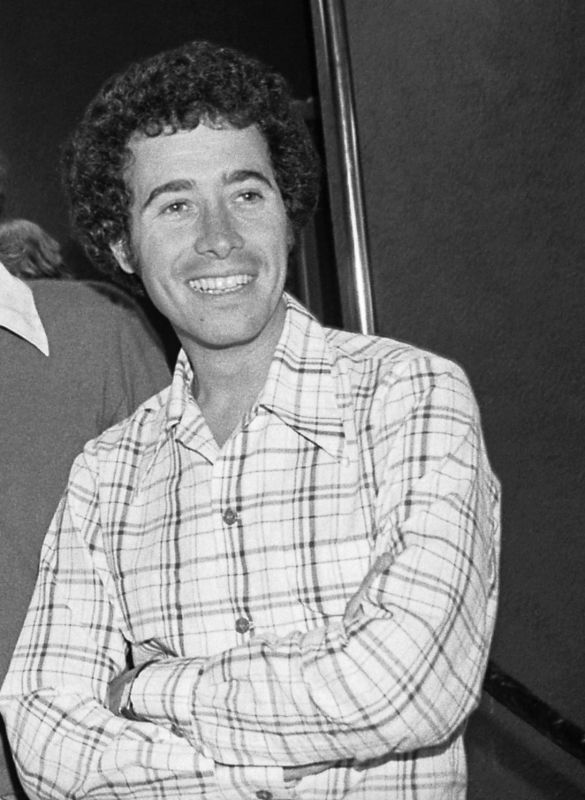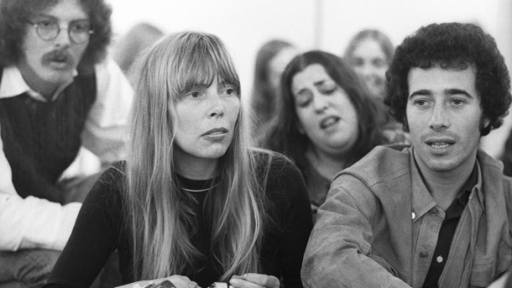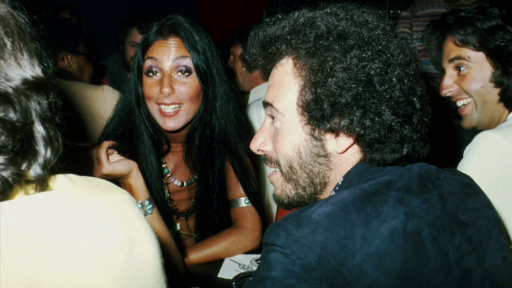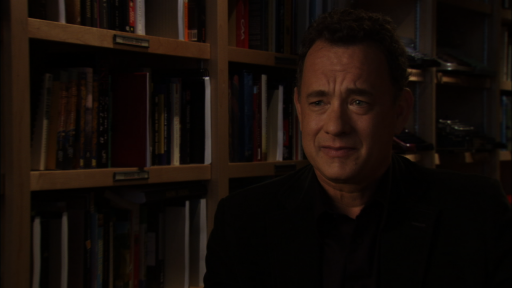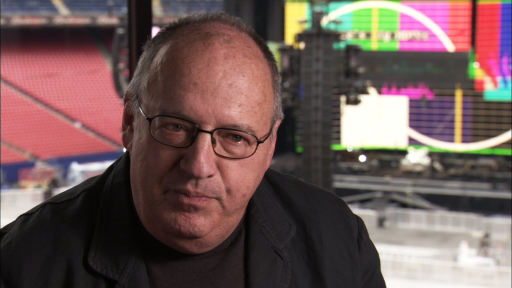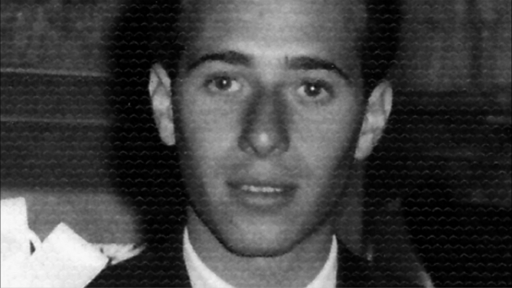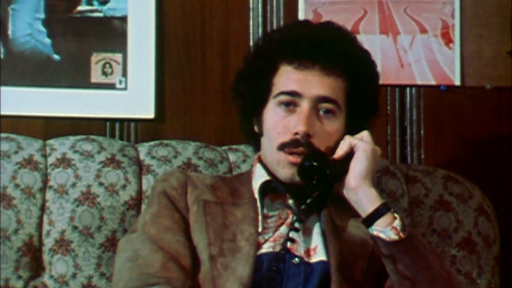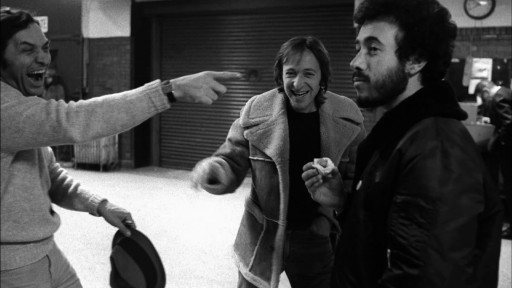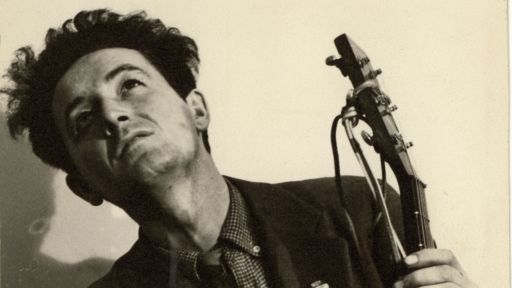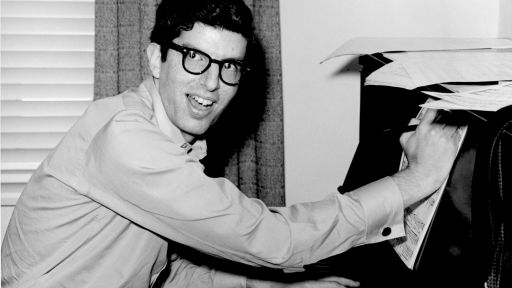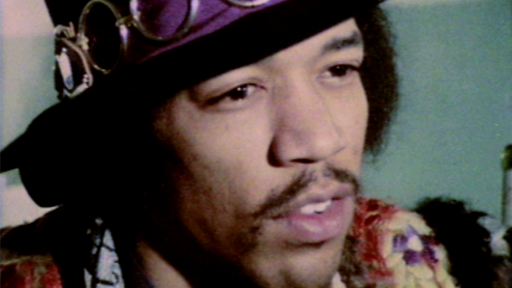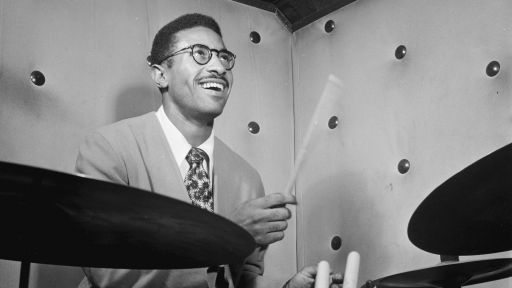Julia Sachi Mates shares how David Geffen’s vision as a music producer changed her appreciation for the talent of nurturing talent. Written as part of the American Masters Digital Archive project, this essay draws on original interviews conducted for Inventing David Geffen directed by Susan Lacy, including extensive conversations with Cher, David Crosby, Tim Burton, Steven Spielberg, Nora Ephron, Tom Hanks, Elton John and more.
In eighth grade, we moved my Dad’s record player and his curated collection into my brother’s room.
He called them LPs and was a little miffed that his children now referred to bits of his life as “vinyl.” His library relieved my brother and I from buying staples of 20th century music in the new millennium’s hipster boom. Though other kids couldn’t help if their parents abandoned sentiment when transferring to tapes and CDs, there was a bit of pride in knowing that someone in our bloodline paid for these albums before a remastered sticker existed. His copy of Jackson Browne’s debut self-titled album – often mistakenly called “Saturate Before Using” – had the texture of a burlap sack, his copy of “Madman Across the Water” had a printed booklet, and his “White Album” had a serial stamp. (Unfortunately, the guy he bought it from damaged its worth by outlining the title in blue ball point pen because he was “probably high.”)
I had to ask my Dad where to put the needle down, exposing to both of us just how much my generation missed out on this experience of music. Waiting for the record to spin at a consistent pace so as not to scratch it and studying the liner notes, I recognized that these circles of wax contained something that was missing from today’s music. Research helped me compile possible reasons: the cliquish bohemia of Laurel Canyon, the counterculture movement and the simple production.
Never did it occur to me that it might be the influence of a curly-haired businessman from Brooklyn by the name of David Geffen.
https://pbs-wnet-preprod.digi-producers.pbs.org/wnet/americanmasters/archive/interview/jackson-browne/
When I swooned over Geffen’s impact on the industry after watching Inventing David Geffen, my Dad, who has read an insurmountable amount of literature about this topic, warned, “There are a lot of people who wouldn’t say he’s so great.” After watching stages of Geffen screwing over The Eagles and suing Neil Young in the documentary, I saw his point. But, without his ruthless persona, the 1970s singer-songwriter movement would not have defined the sound of the decade. Goodness knows, disco could have propelled us into the world of the electronic music era much sooner than necessary. Without Geffen, there would have been no professional minds to protect artists from the capitalist tendencies of the industry.
https://pbs-wnet-preprod.digi-producers.pbs.org/wnet/americanmasters/archive/interview/neil-young/
It was his desire to share great entertainment with the world and his maturity to recognize that his gift was finding it in others.
With the brain of a businessman, the instinct of a poker player and the soul of an artist, Geffen recognized early on that he wanted to be in the industry, but had no musical talent. His drive could have been applied to any profession; he easily could have worked his way up as a runner in the stock exchange instead of the William Morris mail room. Maybe because something went wrong in assigning talent genes, this ambitious entrepreneur was drawn to the way music and stories can make a person feel. As a teenager, he worked as an usher in Broadway theaters to be near the magic. It was not fame or glamour (money, maybe) that defined Geffen’s desire.
https://pbs-wnet-preprod.digi-producers.pbs.org/wnet/americanmasters/archive/interview/cherilyn-cher-sarkisian/
Heartbreak often nurtures the most powerful pieces of art, especially songs that captivated Geffen, like Jackson Browne’s “Song for Adam” and Joni Mitchell’s “The Circle Game,” which he was able to single out when covered on Buffy Sainte-Marie’s album. His greatest heartbreak struck with the betrayal of Laura Nyro. His first client and star, Geffen abandoned corporate opportunities and invested all his devotion in Nyro. She did not return this faith when Geffen went on to start his own record label and she declined to sign with him.
https://pbs-wnet-preprod.digi-producers.pbs.org/wnet/americanmasters/archive/interview/elton-john/
Because his talent was dealmaking and logistics, rather than lyrics and fingerpicking, he used this pain as a reminder that he was in a business. He went into the next step of his life and built Asylum Records, appropriately named to be an artist’s safe haven, with a detachment and awareness. He could still commit with his heart, soul and ear to promote great talent, but he needed to understand that he could not be blinded by the artistic integrity and bohemian tendencies of his artists.
https://pbs-wnet-preprod.digi-producers.pbs.org/wnet/americanmasters/archive/interview/david-crosby/
Each artist is specific to their own voice.
It is easy to say that only one band can blend harmonies like Crosby, Stills, Nash and Young and that only one woman can blend insight, whimsy and humor into lyrics like Joni Mitchell. Before studying Geffen, I was sure that businessmen were a dime a dozen. My romantic ignorance is now flipped over and I see that amongst the great poets and musicians remembered for their individuality in this time, Geffen had maybe the most distinct talent. While the people we recognize were penning anthems of the 70s in the common area, there was only one person booking gigs and yelling on the phone. The one common thread amongst all the interviews in this collection was that Geffen’s success was due to his love for music. Neil Young said Geffen’s art was dealmaking, yet still songs like “On the Way Home” were able to tingle his gut and get him to commit to an artist’s career.
https://pbs-wnet-preprod.digi-producers.pbs.org/wnet/americanmasters/archive/interview/saul-slash-hudson/
Part of what attracts people to the arts is its subjectivity, the lack of a measurement unit.
What is the formula for measuring how people feel? While we wait for an answer from the International Bureau of Weights and Measures, we look to people like David Geffen, a person with the brain of a businessman and the soul of an artist. His honest love for entering the industry forced him to see honesty in others and protect them from corruption. Even more than great artists, this is what is missing in the entertainment industry today. Geffen took on all burdens so that artists could stay true to their purpose. He handled the negotiation of contracts so that musicians did not have to negotiate their expression. Few artists and even fewer businessmen have the guts to do that.
https://pbs-wnet-preprod.digi-producers.pbs.org/wnet/americanmasters/archive/interview/steven-spielberg/
Maybe it was Geffen himself who raised the bar of success.
Part of Geffen’s genius is his rhythmic instinct and every interview said that he cashed out of the music business with optimal timing. Despite being in the action, he was able to see its unsustainable future from afar, which makes the Asylum movement all the more sad and all the more perfect. We cannot credit David Geffen for the soundtrack that reflected the ease of the 70s. But we can thank him for being the man behind the curtain who memorialized an honest time in history for generations to come. I will never be able to catch a guitar pick that Glenn Frey tosses into the crowd at a concert. But, I will forever be able to watch the Asylum logo spin on my Dad’s turntable until it becomes a memory of my own.

